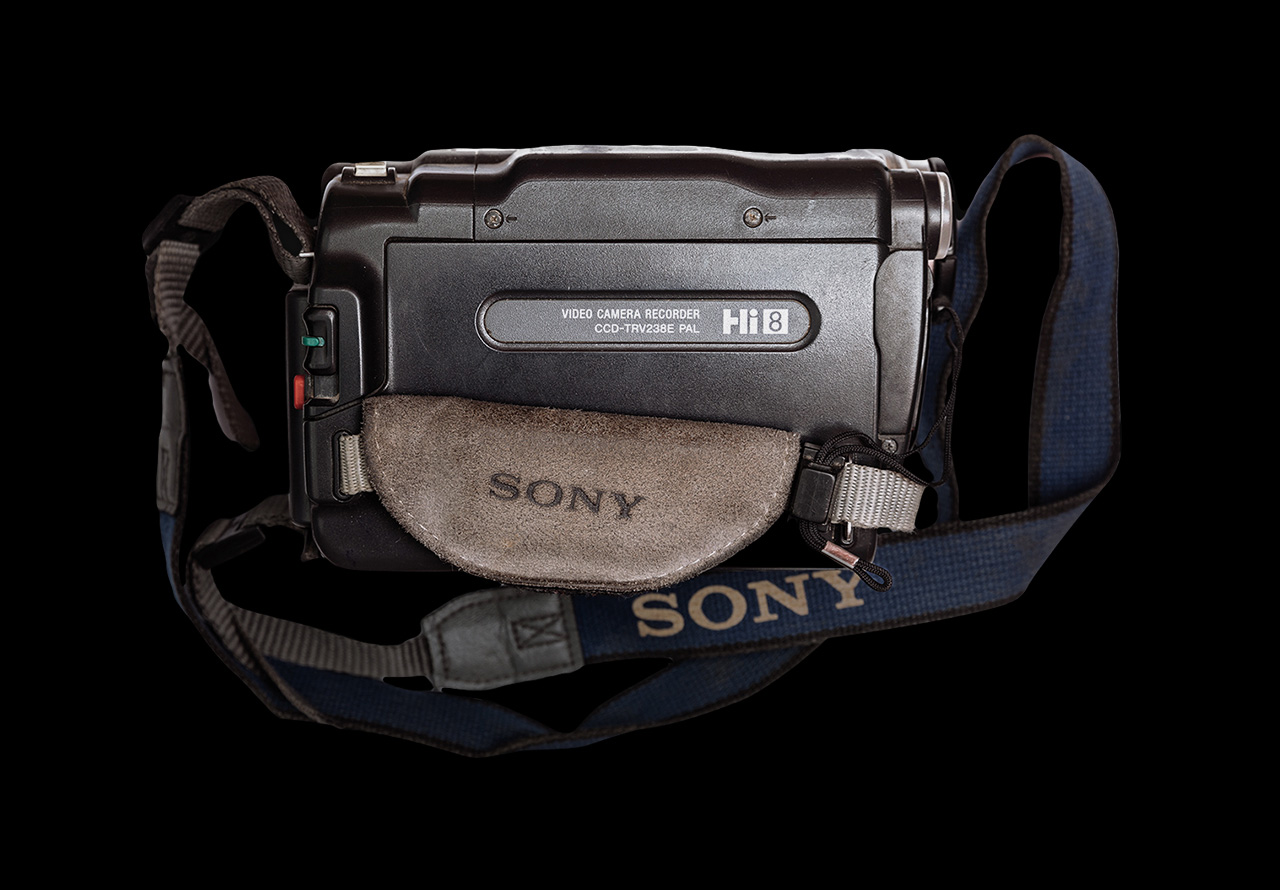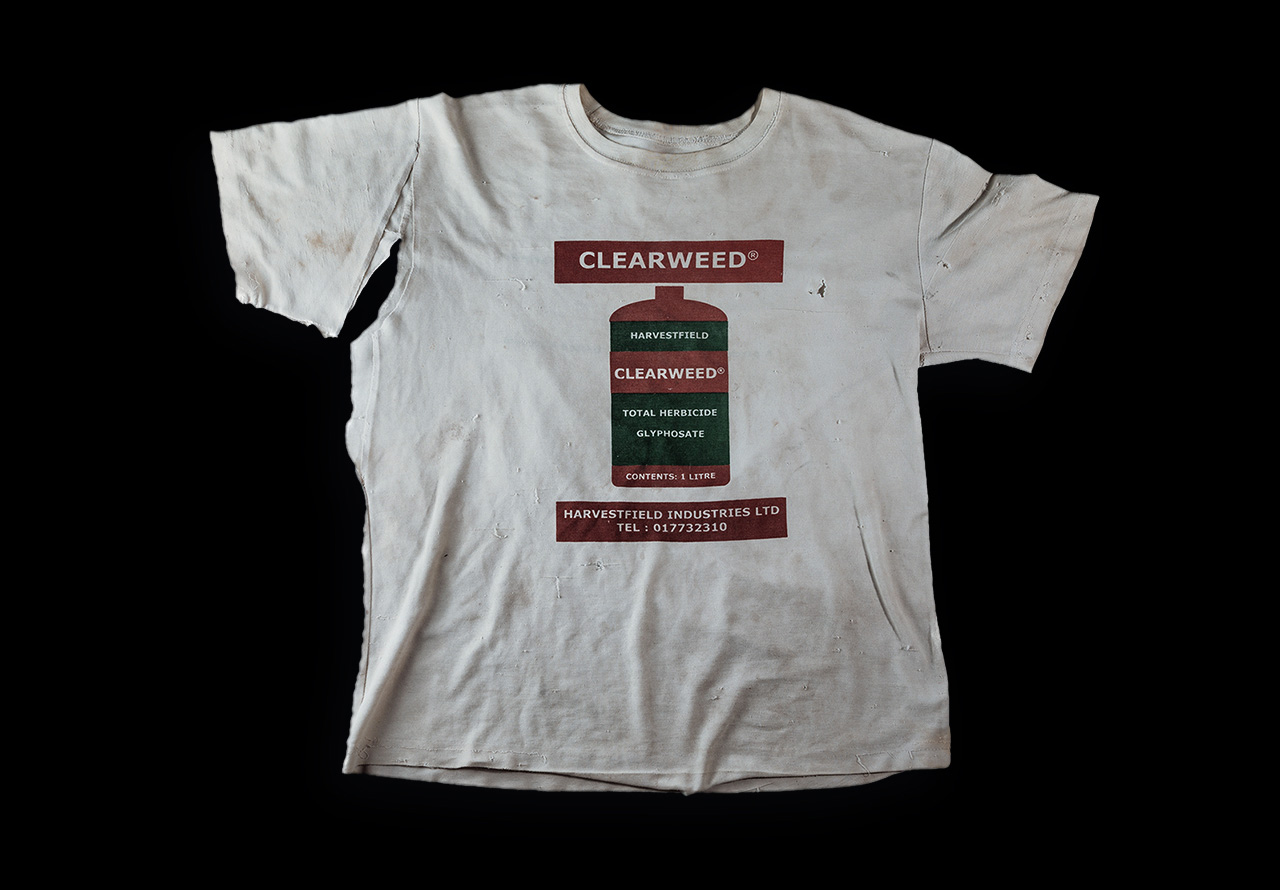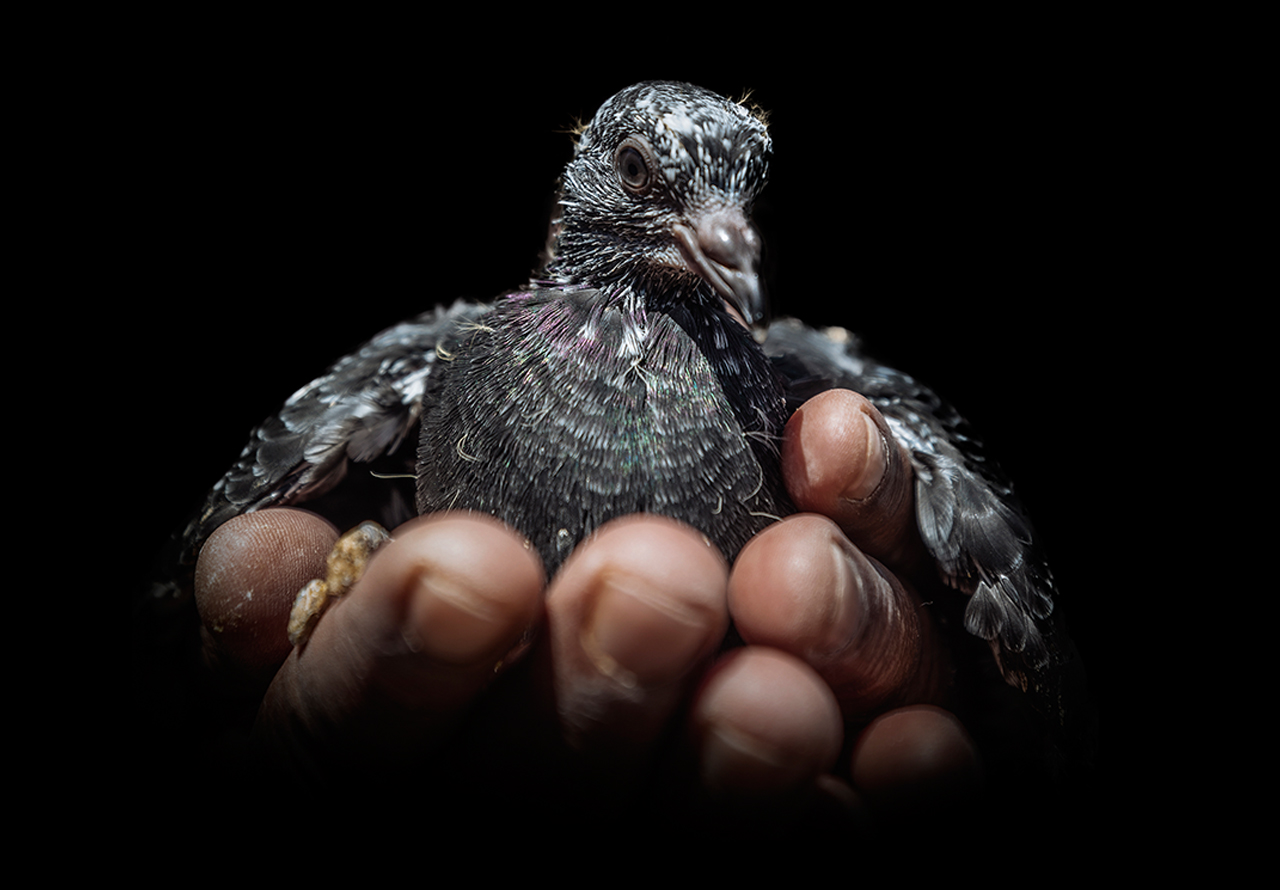“Honestly, displacement affects me a lot because it has ruined my life,” Oza Modu says of the life he hoped to build with his young wife, Rabi, who he married three years ago. “After we got married, we didn’t even spend two or three months [as newlyweds] before we were displaced,” Oza explains. Boko Haram attacked his village of Baga in northeastern Nigeria near the foot of Lake Chad. He remembers the “pop, pop, pop, pop, pop” of gunshots as the group descended on the once-peaceful towns and villages, “levelling bodies to the ground.”
The newlyweds and longtime neighbours fled together at daybreak. “When I started running, I noticed the sweater [hanging in my room]. The only thing I thought was to take my sweater in case I got cold. After I put it on, I took my phone and my torchlight. That was the only chance I had to take something from home,” he says of the panicked moment when they fled.
That was the first time. The 28-year-old has been displaced two times in three years and has narrowly escaped Boko Haram on four different occasions. “They were on our tails,” Oza recalls of moving from one village to the next in search of safety, walking for hours and hours without food or water.
A town would seem peaceful, then the very next day, Boko Haram would attack it, he says. Throughout their plight, Oza trusted his instincts, once choosing to sleep in a cool, damp forest by the riverside instead of indoors in a nearby village. Hours later, that village also fell victim to the armed conflict group.
“I’m happy God kept me alive,” Oza says of his many close calls. He and Rabi walked for six days, taking breaks to hide in forests to avoid Boko Haram along the way, to reach the relative safety of Maiduguri, Borno state’s capital city, about 200km south of their hometown.
Oza returned to his hometown briefly, a month later, and had to flee for a second time to Maiduguri, where he rejoined Rabi, following more Boko Haram attacks.
The young couple beat the odds, but displacement has left their lives interrupted. “It has destroyed so many of the plans I had for my life. In my mind, I have planned to pay for my wife’s studies. She has almost completed secondary school. If I start earning a [good] salary, I swear, I even promised her, I will pay for her to go to the school of health [in Maiduguri] to study to become a doctor. She would help herself and all of us. If not for our displacement, I swear, she would be graduated by now.”
“I studied science at secondary school … because it was my father’s dream for us to become doctors. That’s why he put us in science class. We studied and studied, but then our father died. And we didn’t have the opportunity to finish our studies. I want her to fill my father’s ambition for me, on my behalf.”
Rabi beams as her husband talks about their dream; “I will be so happy if he can fulfill his promise,” she says. She has cozied up to him, their arms intertwined and her head nestled into his neck, as they sit on the worn twin mattress they share with three other people.
They live in a small room in an unfinished concrete building in a camp for internally displaced Nigerians, like themselves. Oza and Rabi use a sheet of aluminum as a door. The walls don’t reach the ceiling and there is not much privacy, often the reality when so many people seek shelter in the same place.
The camp is home to about 7,000 displaced people, most of whom live in the same rudimentary buildings the government had intended to house teachers and officials in Maiduguri, before insecurity forced schools to close (some reopened over the last year and a half) and derailed development plans.
Their lives are filled with uncertainty. Oza used to work with his older brother, transporting goods to Maiduguri, Niger, and Chad. They also had a farm. “I learned the most from him,” he says of their time together. “We were living a good life. No! What we earn now is nothing compared to what we used to get.”
“I’m not happy with my life because I left many things behind and even the work that I’m doing now is not stable,” Oza laments. “I’m doing a little work as a barber. And you see I have [family], my mum, my sister and me to take care of. The work I’m doing in this camp doesn’t always cover my needs. That’s the biggest problem I’m facing. My father is not alive. I have younger brothers. I’m the eldest now. I’m the one who is supposed to support them. That’s why I’m saying I’m not happy with my life.”
Still, in some ways, their lives are not unlike those of young people elsewhere; their friends pile into their small, dimily lit room, decorated with radiant pink fabrics and whimsical white lace, to huddle around a laptop to watch movies and “gist,” Nigerian Pidgin English for “chat” or “gossip.” Their laughter fills the small space, outdoing the cheerful pink decoration and pastel yellow walls.
They also gather to share memories. “We stick together,” Oza says of those, like him, who fled from the same hometown and nearby villages.
“My happiest memory from back home [is when] many drivers would gather together before we travelled for work,” he explains of his job driving goods to different locations. “When we’d start loading our trucks, we’d chat and drink tea. If I think of those times, I feel very happy [as I do] when I also think of the time, we’d farm … with the people of our village. There are only 20 houses in our entire village. We’d start chatting. We’d all meet together. I was very happy.”
At the centre of Oza’s memories are his most cherished possessions: about 20 old photos he has from home. They were tucked away for safekeeping in the sweater he rushed to grab when he fled – the only thing he took from home that fateful morning. The photos were a welcome surprise.
Oza is holding on to the photos and, especially, to his favourite, which shows him as an eight-year-old boy crouched among his siblings, cousins, and nephews. “Nothing will make me part from this photo, only death or if somebody steals it without my knowledge.”
“Nothing will make me part from this photo, only death or if somebody steals it without my knowledge.”
“Honestly, if I see these photos, some make me feel bad and unhappy. And others make me happy, especially those [of people] whose photos make me happy, like [the ones] of me with my brothers and sisters. Like the photos of my cousins,” Oza says.
“Sometimes, I feel happy when I look at those photos, but if I look at this one, I feel very sad because this photo is from when we were kids. I remember, we were playing outside that day when my older brother, who would also take care of us and cook for us, but he is now dead, said, ‘come, let’s take a picture, it will be part of our history one day.’” And that it has.

The photo shows “my brothers who joined Boko Haram. My eldest brother who died, my younger brothers, and those who Boko Haram killed or abducted. All of them are in this picture,” he explains, carressing his favourite photo with his right hand.
“We heard this brother was killed in an attack near our hometown,” he says, pointing at one of the 25 people pictured. The 20-year-old photo is dog-eared and fading. Oza’s memories remain fresh.
“These relatives are grown up now … and some are married,” Oza imagines, stroking the cheek of his older sister who smiles back from the photo. “To this day, I’ve never seen her again. And she also doesn’t know where we are since we never saw each other again. She fled with her husband,” he says.
When Oza fled with Rabi three years ago, he was separated from most of his family. Today, he only knows the whereabouts of five of the people pictured. “That’s why when I look at this photo I feel very sad. The others, who Boko Haram abducted or killed, honestly, if I think of them, I feel very sad. Very sad, not just a little bit. I’m not happy because I believe, if they were still around, we’d be together.”
He thinks of his older brothers, who like so many young men, were pushed to join Boko Haram. “One even came back to attack our village,” Oza says, explaining that he managed to avoid recruitment and instead, joined the civilian taskforce to protect the public from the group. “Truly, I feel so bad because I lost my older brothers. Those who were so close to me … we loved each other so very much. They loved me and I loved them. Whatever I needed, they would do for me, but they were all taken away.”
“Because I know we will not meet again, I try to calm down and move on. I’m happy that God kept me alive,” Oza affirms once more.
He talks about the younger siblings who survived, having lost their older brothers and sisters to relentless Boko Haram abductions and attacks in a nearly nine-year conflict that has left almost no one unscathed, displacing more than two million people in northeast Nigeria at its peak.
“For those who were left behind,” the young survivors, “I will act as their parent and take care of them. And protect them. Since our older brothers are no longer alive, I will be like their older brother,” Oza says, remembering how his late brother, the one who asked them to take the special family photo, cared for him and their siblings. “Even if I feel sad, I will continue to support them, those who are younger than me. I will help them get through this.”
And with that, Oza is building his own legacy in a life interrupted.


